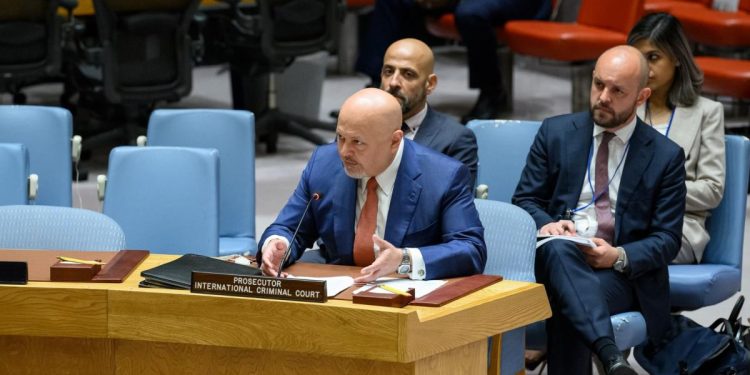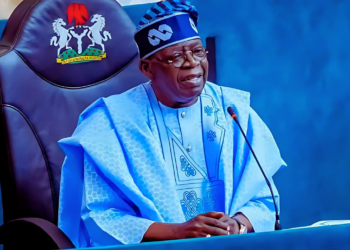On May 20, 2024, the International Criminal Court’s (ICC) prosecutor, Karim Khan, began a process to issue arrest warrants against Israeli Prime Minister Benjamin Netanyahu and Defense Minister Yoav Gallant, along with several Hamas leaders. These warrants allege war crimes committed on and since October 7, when Hamas terrorists launched a brutal attack on Israel. This action by the ICC has sparked significant controversy and criticism, particularly regarding its timing and underlying motivations.
Context and Criticism
-
Historical Inaction Against Hamas:
For years, Hamas has been widely recognized as a terrorist organization responsible for numerous attacks on civilians. Despite this, the ICC has historically taken no significant action against Hamas leaders. This long-standing inaction raises questions about the ICC’s priorities and consistency in addressing war crimes. The sudden pursuit of the issuance of arrest warrants now, particularly in the context of targeting Israeli leaders, seems inconsistent with the ICC’s previous lack of engagement with Hamas’s activities.
-
Response to October 7 Attacks:
The October 7 attack by Hamas was a blatant act of terrorism, involving murder, rape, torture, and other crimes against unarmed civilians. The ICC prosecutor’s silence at that time was notable. It has suddenly become convenient to bring Hamas leader to justice because it plays to the real agenda of including Israeli leaders in the arrest warrants. This dual issuance appears to many as a strategic move to deflect criticism and present a semblance of balance, rather than a genuine pursuit of justice for the victims of the October 7 atrocities, which includes Israelis and Palestinians.
-
Perception of Bias:
The timing of the arrest warrants gives the impression that the primary target is Israel, rather than Hamas. By simultaneously pursuing charges against Hamas, the ICC may be attempting to mitigate accusations of bias. However, this tactic is perceived by some as superficial and politically motivated. The inclusion of Hamas leaders, long after their well-documented crimes, seems more like a belated afterthought than a principled stand against terrorism.
International Reactions
-
Israeli Response:
Israel’s top diplomat labelled the decision a “disgrace,” reflecting the widespread sentiment within Israel that the ICC is unfairly targeting its leaders. Prime Minister Netanyahu condemned the warrants as an act of anti-Semitism, exacerbating tensions and reinforcing the narrative that Israel is being unjustly isolated on the global stage.
-
US. Stance:
President Joe Biden criticized the ICC’s move against Netanyahu as “outrageous.” The U.S., a close ally of Israel, does not recognize the ICC’s jurisdiction over its nationals or those of Israel, similar to its stance on the ICC’s warrant against Russian President Vladimir Putin. This non-recognition underscores the geopolitical complexities surrounding the ICC’s actions and highlights the selective application of international justice.
Potential Consequences
Should the ICC judges approve the warrants, Netanyahu and Gallant would face travel restrictions, as ICC member states would be obliged to arrest them. This scenario mirrors the situation faced by Putin, who cancelled a trip to South Africa due to an ICC warrant. However, practical enforcement remains uncertain given Israel’s non-recognition of the ICC.
Implications for Israeli Leadership and Policy
The ICC’s actions may inadvertently bolster domestic support for Netanyahu and his administration. Many Israelis see the warrants as an attack on their country’s sovereignty and legitimacy. This perception could consolidate hardline positions within Israeli politics, complicating efforts towards peace and stability in the region.
Furthermore, the comparison between Israeli leaders and Hamas terrorists is deeply troubling for many. Equating a democratically elected government, albeit with controversial policies, to a recognized terrorist group that has committed heinous crimes against civilians, muddies the waters of international law and justice. It risks creating a false equivalence that undermines the moral clarity necessary for addressing terrorism and state violence.
Conclusion
The ICC’s issuance of arrest warrants against both Israeli and Hamas leaders appears to be a politically charged move rather than a straightforward pursuit of justice. The timing and context suggest a reactive strategy aimed at deflecting criticism of bias rather than a principled stand against all perpetrators of war crimes. This action has significant implications for international relations, particularly for Israel and its allies, and raises fundamental questions about the consistency and fairness of international justice mechanisms. As the situation unfolds, it will be crucial to monitor how these developments influence both regional stability and the broader landscape of international law.
Williams Ukonu is a lawyer and writes from London, UK. Follow him on X: @WilliamsUkonu
For any enquiries please, email our editorial team at [email protected]. If you liked this story, kindly sign up for Clariform Newsletter, a handpicked selection of stories that helps you clarify things that matter and gives you clear signals about your world, delivered directly to your inbox.
Please subscribe to our YouTube channel, and join thousands of Clariform on Facebook, Twitter and Instagram.












